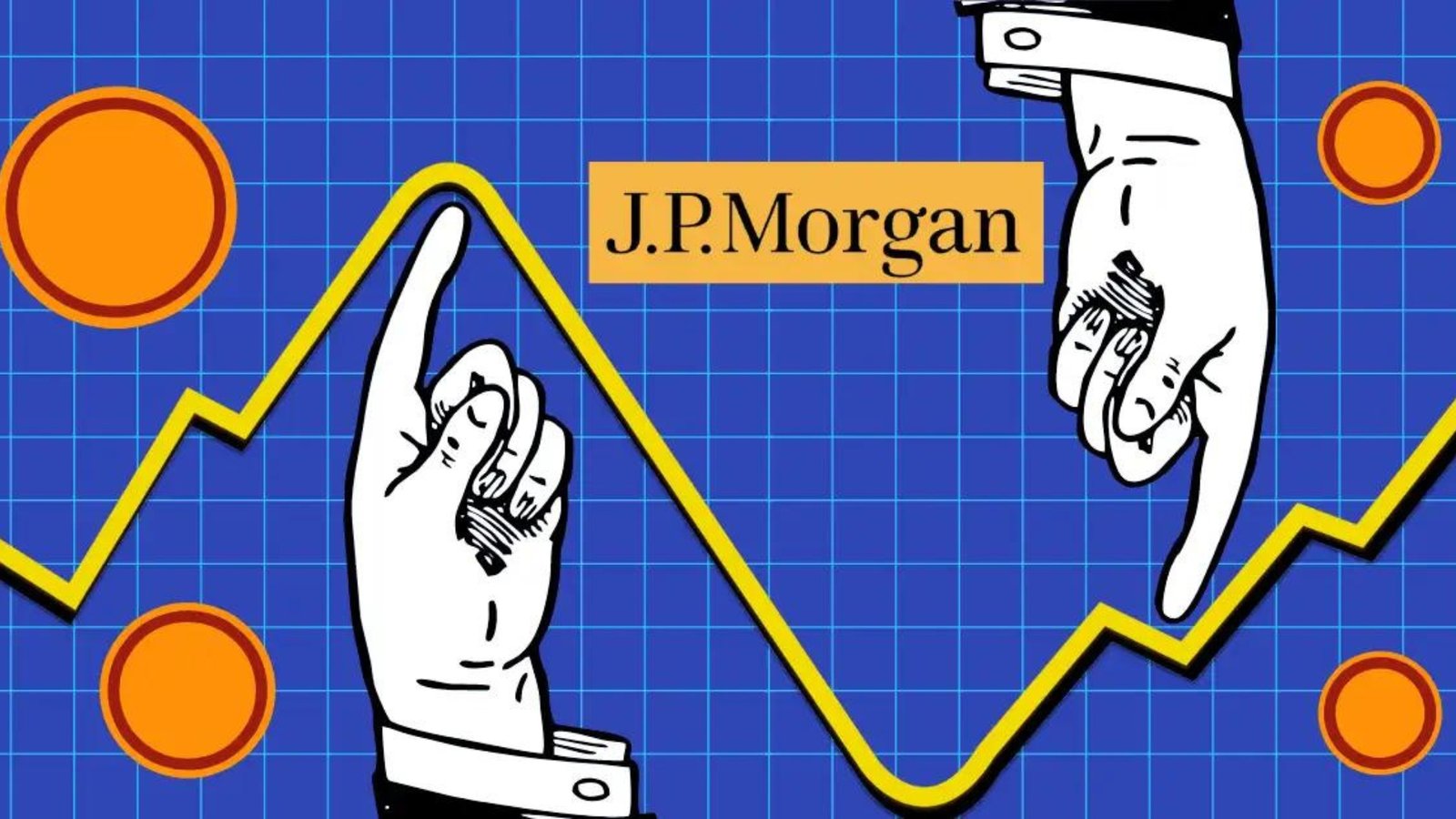Introducing Bitcoin and other cryptocurrencies has caused more excitement—and controversy. Than any other invention in the dynamic world of financial markets. Traditional financial institutions are trying to figure out how to connect the worlds of digital assets and cryptocurrencies since digital assets are becoming more widespread. New Bitcoin Exchange-Traded Funds (ETFs) are among the most noteworthy innovations in this field. The possible Bitcoin ETF from financial behemoth JP Morgan Chase & Co. is among the most talked-about because of the company’s cautious attitude towards cryptocurrencies in the past.
Understanding Bitcoin ETFs
Before delving into the specifics of JP Morgan’s Bitcoin ETF, it’s crucial to understand what a Bitcoin ETF is and why it matters. An ETF is an investment fund that tracks the price of an underlying asset or group of assets. It is traded on stock exchanges, much like shares of a company. Bitcoin ETFs are designed to track the price of Bitcoin, allowing investors to gain exposure to the cryptocurrency without having to own it directly.
The appeal of a Bitcoin ETF lies in its accessibility and regulatory oversight. Unlike direct investments in Bitcoin, which require dealing with cryptocurrency exchanges, wallets, and private keys, a Bitcoin ETF can be bought and sold through traditional brokerage accounts. This lowers the barrier to entry for investors who are interested in Bitcoin but are hesitant to navigate the complexities and risks associated with holding the cryptocurrency directly.
JP Morgan’s Historical Stance on Bitcoin
Interestingly, JP Morgan is working towards a Bitcoin ETF because of the company’s past position on Bitcoin. Jamie Dimon, CEO of JP Morgan, has strongly criticized Bitcoin. He gained notoriety in 2017 for his infamous “fraud” prediction that Bitcoin was “worse than tulip bulbs,” a reference to the 17th-century Dutch tulip frenzy. Dimon first took a hard line against cryptocurrency, but he subsequently changed his mind, seeing the necessity for regulated financial products to meet the demand from investors.
JP Morgan’s shift in attitude mirrors a broader trend in the financial industry. Initially sceptical, many traditional financial institutions are now exploring ways to integrate cryptocurrencies into their offerings. This change is driven by the increasing legitimacy of digital assets and growing client demand for exposure to this new asset class.
The Race to Launch a Bitcoin ETF
The idea of a Bitcoin ETF is not new. Several financial firms have attempted to launch such products over the past decade, but most have faced significant regulatory hurdles. In the United States, the Securities and Exchange Commission (SEC) has repeatedly rejected Bitcoin ETF proposals, citing concerns about market manipulation, liquidity, and the overall maturity of the cryptocurrency market.
However, the tide may be turning. In recent years, the SEC has shown a greater willingness to consider Bitcoin ETFs, particularly as the cryptocurrency market has matured and more sophisticated trading and custody solutions have been developed. In 2021, the SEC approved the first Bitcoin futures ETF in the United States, paving the way for more comprehensive products that offer direct exposure to Bitcoin.
JP Morgan’s potential entry into the Bitcoin ETF market is a significant development. As one of the world’s largest and most influential financial institutions, JP Morgan’s involvement would lend considerable credibility to Bitcoin ETFs and the broader cryptocurrency market. Moreover, JP Morgan’s deep asset management and financial engineering expertise could result in a highly competitive product that appeals to many investors.
Potential Impact on the Market
Launching a JP Morgan Bitcoin ETF would have far-reaching implications for the cryptocurrency market and traditional finance.
Mainstream Adoption
Perhaps the most immediate impact would be the further mainstream adoption of Bitcoin. While Bitcoin has already gained significant traction, a Bitcoin ETF from a trusted institution like JP Morgan could encourage more conservative investors to dip their toes into the crypto market. This would likely increase demand for Bitcoin, potentially driving up its price.

Increased Liquidity
A Bitcoin ETF would also contribute to the liquidity of the Bitcoin market. By making it easier for investors to buy and sell Bitcoin, an ETF would likely lead to more trading volume and a more stable market. This increased liquidity could, in turn, reduce the volatility that has historically been a hallmark of Bitcoin.
Regulatory Clarity
Approving a JP Morgan Bitcoin ETF could also signal greater regulatory clarity for the cryptocurrency market. If the SEC adopts JP Morgan’s ETF, it would set a precedent for other financial institutions, potentially leading to a wave of new cryptocurrency-related products. This would broaden the range of investment options and help legitimize. The cryptocurrency market in the eyes of regulators and policymakers.
Competition in the ETF Market
JP Morgan’s entry into the Bitcoin ETF market would intensify competition among ETF providers. Several firms are vying to launch the first successful Bitcoin ETF in the United States. JP Morgan’s deep resources and extensive client base could give it a competitive edge, but it would also push. However, other providers are innovating and offering more attractive products. This competition could benefit investors by lowering fees and offering diverse investment options.
Conclusion
The potential launch of a JP Morgan Bitcoin ETF represents a significant integration milestone. Cryptocurrencies into the mainstream financial system. If successful, it could accelerate the adoption of Bitcoin and other digital assets, increase market liquidity, and provide investors. A regulated and accessible way to gain exposure to this new asset class. However, significant challenges remain, particularly in regulation, volatility, and security. As the cryptocurrency market continues to evolve. Investors and financial institutions will closely watch the outcome of JP Morgan’s efforts.



